 January 20, 2022 John E. Ross, KD8IDJ, Editor
| ||||||||
ARES Activates as Wind-Driven Year-End Fire Destroys 1,000 Colorado Homes Members of the Amateur Radio Emergency Service® (ARES®) in Colorado, volunteering for the Boulder County (Colorado) Amateur Radio Emergency Services (BCARES), turned out on December 30, 2021 as the devastating Marshall Fire roared through Superior and (portions of) Louisville, Colorado. Intense winds whipped a grass fire south of "The only battle was evacuation, as the towns of Louisville and Superior and [the] northern suburbs of Denver lay in the fire's wind-driven path," said Amateur TV (ATV) enthusiast and equipment dealer Jim Andrews, KH6HTV, of Boulder. Andrews said the only thing limiting the fire's spread was the fact that the winds diminished by that evening. "By that time, hundreds of homes had burned down," Andrews said, whose own house was among them. "This was not a typical forest fire, but an urban firestorm." Thousands of people were evacuated. BCARES Board of Directors Chairman and Region 1, District 3 Emergency Coordinator Allen Bishop, K0ARK, said that a request from the Boulder Office of Emergency Management (OEM) to activate the emergency operations center (EOC) is what initiated the ARES activation. "At that time, staffing was initiated with the activation of the BCARES Radio Network, with three BCARES members assigned to the EOC," Bishop said. The BCARES Net was promptly activated.
"To facilitate a restoration of these emergency services, BCARES activated the Mountain Emergency Radio Network (MERN)," Bishop said. Established in 2010, MERN consists of repeaters installed at fire stations in Gold Hill and Allenspark, at community centers in Nederland and Raymond, and the privately owned Airlink Repeater. "These repeaters provided the emergency communication links that facilitated the restoration of 911 communications back to the dispatch center for the duration of the power outages," Bishop explained. The Allenspark Neighbors Emergency Network (ANEN) and Airlink (Alternate Access Radio Network) participated.
According to Bishop, as the Marshall Fire expanded, evacuation center support was requested at three locations to provide on-site situation reports using Winlink. Bishop said BCARES members and mutual-aid ARES operators from neighboring Districts established local communication with the BCARES EOC radio position from designated field locations. BCARES was activated for 2 days. One person died as a result of the fire. As Andrews reported, Boulder County announced on New Year's Day that nearly 1,000 homes were lost. In addition to his own home, the fire destroyed his daughter's home next door, as well as the homes of all his close neighbors. "We had no official warning of the coming firestorm," Andrews said. "My only warning was from our daughter who saw it happening." Andrews added, "KH6HTV VIDEO, as a supplier of ATV gear, will be out of operation for a very long time to come." Andrews edits the monthly Boulder Amateur Television Club TV Repeater's REPEATER newsletter. Extended ARRL Team Will Support February's ARRL National Convention in Orlando An extended ARRL team of member-volunteers, program representatives, and presenters will advance the convention theme inviting attendees to "reDiscover Radio" at Orlando HamCation, host of the 2022 ARRL National Convention February 10 - 13. A wide-ranging roster of workshops, exhibits, and activities will educate and entertain radio amateurs committed to developing knowledge and skills in radio technology and radio communication. The convention will be held in two parts. On Thursday, February 10, an all-day ARRL National Convention Program will be held at the DoubleTree by Hilton Hotel Orlando at SeaWorld. Advance registration is required and includes a series of day-long ARRL Training Tracks DX Engineering is the Official Sponsor of the 2022 ARRL National Convention Program. On Friday, Saturday, and Sunday, February 11 - 13, HamCation will take place at the Central Florida Fairgrounds and Expo Park in Orlando -- an 87-acre lakefront fairgrounds. The convention marks the 75th anniversary of HamCation -- one of the largest annual gatherings of radio amateurs in the US. HamCation tickets can be purchased online until January 31 and at the gate during the event. The centerpiece of ARRL's participation will be a large exhibit area in the East and West Hall. Nearly a dozen ARRL program areas will be represented, including Radiosport and DXCC Card Checking, Radio Clubs, the Amateur Radio Emergency Service®, Development, and the ARRL Foundation. A suite of exhibits organized by the ARRL Education and Learning Department will include an introduction to the new ARRL Learning Center. ARRL Education and Learning Manager Steve Goodgame, K5ATA, will introduce this new member benefit that includes online courses, videos, and other amateur radio instruction and training. At another booth, ARRL Education and Technology Program Instructor Tommy Gober, N5DUX, will cover the ARRL Teachers Institute on Wireless Technology.
ARRL has invited several ham radio content creators from popular YouTube channels to meet and interact with attendees in the exhibit area. Josh Nass, KI6NAZ, of the popular "Ham Radio Crash Course" YouTube channel, will moderate. He is the 2020 winner of the ARRL Bill Leonard Award for outstanding published media that advances amateur radio. Visitors will have a chance to meet ARRL authors and editors. ARRL Laboratory engineers and volunteers will offer free testing of visitors' handheld radios. This service will determine the spectral purity of the output signal from the radios. Members and other attendees can meet ARRL elected officials and Field Organization volunteers at the Southeastern Division booth to catch up on events and to explore opportunities to get involved through their ARRL Sections and radio clubs. The exhibit area will also include the ARRL store and membership area, where visitors may join, renew, or extend ARRL and Diamond Club memberships and purchase publications, apparel, and 2022 Field Day products. New ARRL Membership Manager Matt Caruso will be eager to meet and greet members. ARRL will sponsor three forums at HamCation:
The exhibit area will also include the ARRL store and membership area, where visitors may join, renew, or extend ARRL and Diamond Club memberships and purchase publications, apparel, and 2022 Field Day products. The Orlando Amateur Radio Club sponsors Orlando HamCation. Further details about the convention are available at www.arrl.org/expo and www.hamcation.com. Read an expanded version. ARRL Podcasts Schedule
The latest edition (Episode 51) of the Eclectic Tech podcast features a chat with H. P. Friedrichs, AC7ZL, about his new book Marvelous The On the Air and Eclectic Tech podcasts are sponsored by Icom. Both podcasts are available on iTunes (iOS) and Stitcher (Android) as well as on Blubrry -- On the Air | Eclectic Tech. National Science Foundation Awards Nearly $50,000 for HamSCI Workshop Nathaniel Frissell, W2NAF, an assistant professor at The University of Scranton Department of Physics and Electrical Engineering, has received a National Science Foundation (NSF) grant of nearly $50,000 to support the 2022 Ham Radio Science Citizen Investigation (HamSCI) Workshop. The event is set for March 18 - 19 at The US HamSCI is a collective of professional researchers and radio amateurs with the objective of fostering collaboration between the amateur and professional communities to advance scientific research and understanding, encourage development of new technologies to support this research, and provide educational opportunities for both the amateur radio community and the general public. The workshop will serve as a team meeting for the HamSCI Personal Space Weather Station project, the beneficiary of a $1.3 million NSF-funded project grant awarded to Frissell. That project seeks to harness the power of a network of radio amateurs to better understand and measure the effects of weather in the upper levels of Earth's atmosphere. The theme for the 2-day HamSCI workshop is "The Weather Connection." The fifth annual workshop will feature prominent leaders in space weather, atmospheric weather, and the connection between them.
"The workshop series has led to cutting-edge work in the fields of space physics, citizen science, and the use of crowd-sourced ionospheric data," Frissell said. "To maximize the potential of the ham radio-professional researcher relationship, meetings are needed to bring these groups together to learn about each other's communities [and] vocabularies, to share ideas, and to participate in activities that advance both the scientific field and the radio hobby." Frissell's research focuses on the ionosphere, the atmospheric region that extends 50 - 600 miles above Earth's surface. According to Frissell, changes in the ionosphere alter the behavior of radio wave propagation and greatly affect the radio communications and global navigation satellite systems. "Understanding ionospheric structures and processes will lead to an increased understanding and prediction of these effects," he said. Frissell said he's still seeking presentation abstracts for the workshop. Submit abstracts using the form on the HamSCI Workshop page. Announcements
FCC Seeks Attorney-Advisor for its Mobility Division The FCC has posted an opening for an attorney-advisor in the Mobility Division of its Wireless Telecommunications Bureau in Washington, DC. As a principal attorney with mid-to-senior level responsibilities, the individual's job duties would include working on policy, rulemaking, and legal issues; drafting Commission- and Bureau-level rulemaking and According to the FCC website, the Mobility Division is "responsible for developing policy and rules that facilitate rapid, widespread deployment of wireless communications services. Along with the Broadband Division, it oversees nearly 2 million licenses used to provide an array of wireless services. The Mobility Division helps carry out the [Broadband Personal Communications Service], to private land mobile used for dispatch and remote monitoring of equipment, to maritime and aviation, to personal use such as ham radio." ARRL CEO David Minster, NA2AA, has suggested that the position listing be shared by ARRL members who know an attorney interested in communications law and who has an amateur license. "This non-supervisory position is at the top of the government pay scale. I would urge any amateur who is an attorney and has several years of experience to apply -- especially if they are interested in wireless," Minster said. The deadline to apply for this opening is January 28, 2022. Launch of a Wooden Satellite Still Pending Two spacecraft comprised of wood or using wooden framing are hoping to launch this year and next. One will carry an amateur radio payload.
WISA Woodsat, a Finnish spacecraft that planned to include an amateur radio payload, was forced to postpone its announced launch target from 2021 to 2022 after the International Amateur Radio Union (IARU) Amateur Satellite Frequency Coordination system turned away its request to use amateur radio frequencies. "I regret to inform you that IARU is not in a position to support the WISA Woodsat Coordination request," the coordinator said. "The main reason is that the primary mission doesn't seem to be an amateur mission." As announced last year, WISA Woodsat was designed to accommodate multiple missions -- from materials science, space education, and awareness to promoting and facilitating amateur radio communication with and via satellites. No transponder was on board, but the satellite's sponsors said they had the support of Finland's IARU member-society, SRAL, to use amateur radio frequencies. They are now reworking the spacecraft to use commercial radio frequencies. Meanwhile, LignoSat, a 1U-sized CubeSat with an outside structure mainly composed of wood, has applied for IARU frequency coordination and hopes to launch from the ISS in 2023. Built by students at Japan's Kyoto University, LignoSat includes a unique amateur radio payload but not a transponder. The LignoSat application for IARU Satellite Frequency Coordination in December said the CubeSat would carry amateur radio equipment that will extract call signs of amateur radio stations from uplinked FM
packet signals and respond to them via the CW downlink and the sender's call signs to convey thank you messages. The plan proposes UHF downlinks for CW and FM. The satellite's development team, comprised of Kyoto University and Sumitomo Forestry Company, said it's aiming to harness the environmental friendliness and the economy of wood in spacecraft development. They say a satellite with a wooden exterior would burn up upon re-entering Earth's atmosphere at the end of its mission, lessening its burden on the environment. The wooden framework also will permit the satellite's antennas to be inside the spacecraft. A plan is under way to use an experimental apparatus on the International Space Station to hold wooden sheets of varying hardness, taken from several tree species, attached. These would remain exposed to the space environment for about 9 months to determine their deterioration. LignoSat would be deployed from the ISS in July 2023. Read an expanded version. -- Thanks to Joey Ferguson, W4JF, and Japan Times. Amateur Radio in the News ARRL Public Information Officers, Coordinators, and many other member-volunteers help keep amateur radio and ARRL in the news.
Share any amateur radio media hits you spot with us. Two Radio Amateurs Appointed to the FCC Technological Advisory Council (TAC) FCC Chairwoman Jessica Rosenworcel named two prominent radio amateurs among her appointments to the FCC Technological Advisory Council (TAC) on January 19. Appointed were Greg Lapin, N9GL, and Michelle Thompson, W5NYV. Lapin chairs the ARRL RF Safety Committee and has represented ARRL The National Association for Amateur Radio on the TAC since 2001.
ARRL Laboratory Manager Ed Hare, W1RFI, noted that Lapin has been involved with RF safety and the FCC since the last FCC significant rules changes in 1998," he said. "He is again helping the FCC prepare information on OET Bulletin 65, Supplement B for amateur radio, giving guidance for amateurs who need to comply with the FCC rules on RF exposure. His work is highly respected by the FCC and the ARRL Lab, making it easier for amateurs to evaluate their stations."
Thompson is CEO of the Open Research Institute (ORI), which she will represent on the TAC. ORI is a non-profit research and development organization dedicated to open-source work that includes such areas as amateur satellites and digital communications. She is an ARRL Life Member. Thompson will discuss "Digital Communications Technology" on February 10 at the ARRL National Convention in Orlando, as part of the Technology Academy workshop Track. The TAC serves to assist the FCC in identifying important areas of innovation and developing informed technology policies that support US competitiveness in the global economy. The TAC will consider and advise the FCC on topics such as 6G, artificial intelligence, advanced spectrum-sharing technologies, and emerging wireless technologies, including new tools to restore internet access during shutdowns and other disruptions. The TAC will hold its first meeting of the year on February 28. Getting It Right! Due to an editing error, the call sign of Dexter Anderson, W1STN, SK, was incorrect. In Brief...
The K7RA Solar Update Tad Cook, K7RA, Seattle, reports: Solar and geomagnetic activity increased this week. The average daily sunspot number rose by 52 points, from 42.4 to 94.4. The sunspot number peaked at 120 last Saturday. Average daily solar flux went from 101.6 to 112, peaking at 119.4 on As reported by Spaceweather.com, sunspot AR2929 erupted at 1744 UTC on January 18 with an M1.5 class solar flare, blasting a pulse of X-rays and causing a shortwave radio blackout. I observed the blackout while using FT8 on 10 meters to observe propagation using https://www.pskreporter.info/. Just before the blast I could see my 10 meter signal reported by stations on the East Coast, but suddenly I saw no reports. The surprising part was during that period no local stations could copy my signal either! Predicted solar flux is 102, 98, 94 and 92 on January 20 - 23; 90 on January 24 - 26; 100 and 95 on January 27 - 28; 90 on January 29 - 30; 95 on January 31; 100 and 105 on February 1 - 2; 110 on February 3 - 10; 115 on February 11 - 14; 110, 108, and 106 on February 15 - 17; 102 on February 18 - 21; 100 on February 22 - 23; 95 on February 24, and 90 on February 25 - 26. Flux values may rise to 110 after March 2. Predicted planetary A index is 16 on January 20; 8 on January 21 - 22; 12 on January 23; 8 on January 24 - 26; 5 on January 27; 10 on January 28 - 30; 5 on January 31 - February 3; then 15 and 10 on February 4 - 5; 5 on February 6 - 9; 12, 15, 12, 18, and 10 on February 10 - 14; 5 on February 15 - 19; 8 on February 20 - 22; 5 on February 23, and 10 on February 24 - 26. Sunspot numbers for January 13 - 19 were 111, 112, 120, 103, 99, 59, and 57, with a mean of 94.4. The 10.7-centimeter flux was 105.5, 110.2, 115.6, 119.4, 113.5, 114.5, and 105.3, with a mean of 112. Estimated planetary A indices were 3, 15, 22, 19, 9, 18, and 23, with a mean of 15.6. Middle latitude A index was 3, 10, 17, 16, 6, 12, and 15, with a mean of 11.3. A comprehensive K7RA Solar Update is posted Fridays on the ARRL website. For more information concerning radio propagation, visit the ARRL Technical Information Service, read "What the Numbers Mean...," and check out the Propagation Page of Carl Luetzelschwab, K9LA A propagation bulletin archive is available. For customizable propagation charts, visit the VOACAP Online for Ham Radio website. Share your reports and observations. Just Ahead in Radiosport
Upcoming Section, State, and Division Conventions
Search the ARRL Hamfest and Convention Database to find events in your area. ARRL -- Your One-Stop Resource for
Subscribe to...
Free of charge to ARRL members...
| ||||||||
.jpg) Boulder near Marshall into a massive firestorm that became too large and fierce for firefighters to battle.
Boulder near Marshall into a massive firestorm that became too large and fierce for firefighters to battle.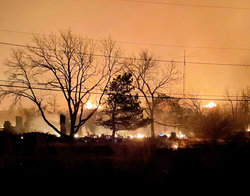 ARES volunteers supported communication at evacuation sites and established emergency communication as commercial power failures and preventive shutdowns by utilities caused a loss of commercial communication. "Within about 8 hours," Bishop said, "battery back-up systems for cell phones and landlines failed, and 911 services went down."
ARES volunteers supported communication at evacuation sites and established emergency communication as commercial power failures and preventive shutdowns by utilities caused a loss of commercial communication. "Within about 8 hours," Bishop said, "battery back-up systems for cell phones and landlines failed, and 911 services went down."(1).jpg)
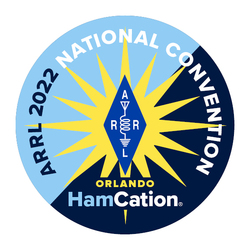 and a National Convention luncheon with a keynote address by ARRL CEO David Minster, NA2AA. The Training Tracks comprise four workshops led by experienced presenters: Contest University (CTU), Emergency Communications Academy, Hands-On Handbook, and Technology Academy. Registration can be completed
and a National Convention luncheon with a keynote address by ARRL CEO David Minster, NA2AA. The Training Tracks comprise four workshops led by experienced presenters: Contest University (CTU), Emergency Communications Academy, Hands-On Handbook, and Technology Academy. Registration can be completed .jpg)
.jpg) The latest episode of the On the Air podcast (Episode 25) features a conversation with Michael Fluegemann, KE8AQW, about how to get started with CW.
The latest episode of the On the Air podcast (Episode 25) features a conversation with Michael Fluegemann, KE8AQW, about how to get started with CW..jpg) Magnetic Machines and the pleasures of "extreme homebrewing."
Magnetic Machines and the pleasures of "extreme homebrewing."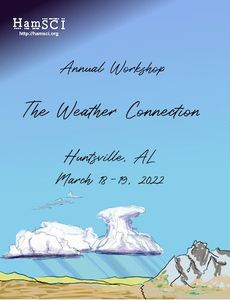 Space & Rocket Center® in Huntsville, Alabama. The in-person conference also has a virtual format option.
Space & Rocket Center® in Huntsville, Alabama. The in-person conference also has a virtual format option.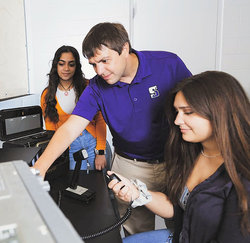
-Blue.jpg) The ARRL Board of Directors' Annual Meeting will get under way on Friday, January 21, and continue into the next day. Topping the
The ARRL Board of Directors' Annual Meeting will get under way on Friday, January 21, and continue into the next day. Topping the .jpg) and the addition of the
and the addition of the .jpg) adjudication decisions, and reviewing proposed legislation, rulemakings, orders, and changes to regulations.
adjudication decisions, and reviewing proposed legislation, rulemakings, orders, and changes to regulations.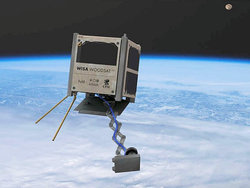
.jpeg)
.jpg)
.jpg)
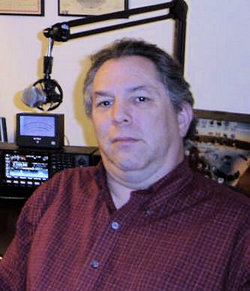 A new Section Manager has been appointed for Northern New York. Thomas Dick, KF2GC, Section Manager for the ARRL Northern New York Section, has stepped down after serving, first from 2000 - 2006 and again from 2009 - present. ARRL Field Services Manager Mike Walters, W8ZY, has appointed Rocco Conte, WU2M, of Gloversville, New York, to succeed him on an interim basis. Conte has served as an Assistant Section Manager and District Emergency Coordinator for the last several years. His appointment became effective January 17, 2022.
A new Section Manager has been appointed for Northern New York. Thomas Dick, KF2GC, Section Manager for the ARRL Northern New York Section, has stepped down after serving, first from 2000 - 2006 and again from 2009 - present. ARRL Field Services Manager Mike Walters, W8ZY, has appointed Rocco Conte, WU2M, of Gloversville, New York, to succeed him on an interim basis. Conte has served as an Assistant Section Manager and District Emergency Coordinator for the last several years. His appointment became effective January 17, 2022..jpg) Amateur operation in the 3.45 - 3.5 GHz of 9 centimeters must cease by April 14, 2022. Secondary operations will be permitted to continue indefinitely in the remainder of the band, 3.3 - 3.45 GHz, pending future FCC proceedings. On January 14 the FCC
Amateur operation in the 3.45 - 3.5 GHz of 9 centimeters must cease by April 14, 2022. Secondary operations will be permitted to continue indefinitely in the remainder of the band, 3.3 - 3.45 GHz, pending future FCC proceedings. On January 14 the FCC 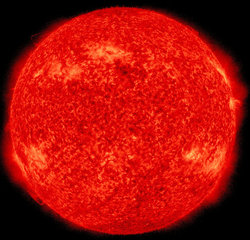 Sunday. Average daily planetary A index rose from 6.1 to 15.6, and average middle latitude numbers went from 4.1 to 11.3.
Sunday. Average daily planetary A index rose from 6.1 to 15.6, and average middle latitude numbers went from 4.1 to 11.3.







